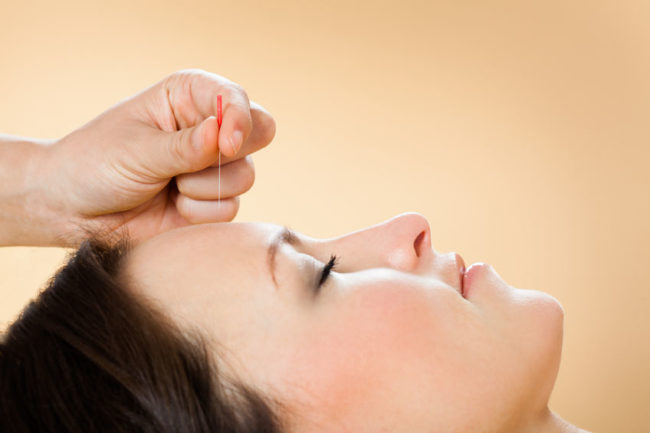By John Salak –
Spring brings the promise of all sorts of positives—warmer weather, outdoor activities, baseball, barbecues and blooming flowers. Unfortunately, it also brings hay fever (allergic rhinitis) to about 20 million Americans each year, who shell out over $5 billion in various treatments annually, according to Medscape.com.
Traditional answers include antihistamines, decongestants, leukotriene modifier tablets, nasal sprays, shots, sinus rises and more. They all claim to be effective to varying degrees—which also means that they are all somewhat ineffective too. In recent years an intriguing alternative has gained increasing prominence: acupuncture treatment. A component of traditional Chinese medicine that dates back over 5,000 years, acupuncture has been used to treat a range of chronic diseases and problems by inserting fine needles into the skin at exact body points to restore the balance of “vital flows.”
Does it work? There are thousands of practitioners and their patients who swear by acupuncture to relieve what ails them, including chronic hay fever. Time, CNN and other reputable news outlets and medical journals have reported on acupuncture’s possible curative powers. Unfortunately, sound clinical research that proves its worth is limited.
“Most studies on acupuncture used to treat allergies are poorly designed and are not up to typical scientific standards. Many of these studies fail to include a “control” (a placebo, or “fake” treatment) group, as well as lack of “blinding” (meaning the researchers don’t know who is getting the real treatment and who is getting a placebo treatment, so they cannot be biased) as part of the study design,” reported VeryWellHealth.com.
Yet there are some tantalizing dollops of research available. One of the most intriguing comes from Berlin’s German Research Foundation, which examined how 422 allergy sufferers responded to various treatments. One segment of the group was given acupuncture treatments and antihistamines as needed; a second group was given sham acupuncture treatments and antihistamines as needed; and the third group was given antihistamines. The results showed that the group given real acupuncture treatments had the best response, though even those receiving shame treatments received some relief, indicating a strong placebo effect may lead to some of the improvements.
The Integrative Japanese Acupuncture and Wellness Center in Santa Fe, New Mexico cites yet another study of 150 allergy sufferers who were broken into three groups with one section getting genuine acupuncture treatments, another getting sham procedures and the third receiving traditional medication. The results showed those patients receiving traditional acupuncture treatments saw much higher improvement levels over the others.
Third-party research and medical observers are quick to point out that neither study provides conclusive proof that acupuncture offers relief to hay fever sufferers. But many are just as fast to note that these studies along with the substantial anecdotal evidence of acupuncture’s healing powers—not to mention its 5,000-year history—make its promise extremely exciting.
CNN, in fact, reports that these observers “note that acupuncture’s benefits have started to emerge over the last 15 years and enough high-quality clinical trials support ‘patient-level meta-analyses for several clinical indications.’”
In short, they’re saying: “Hey, this might just work. We’ve got to look further.”












